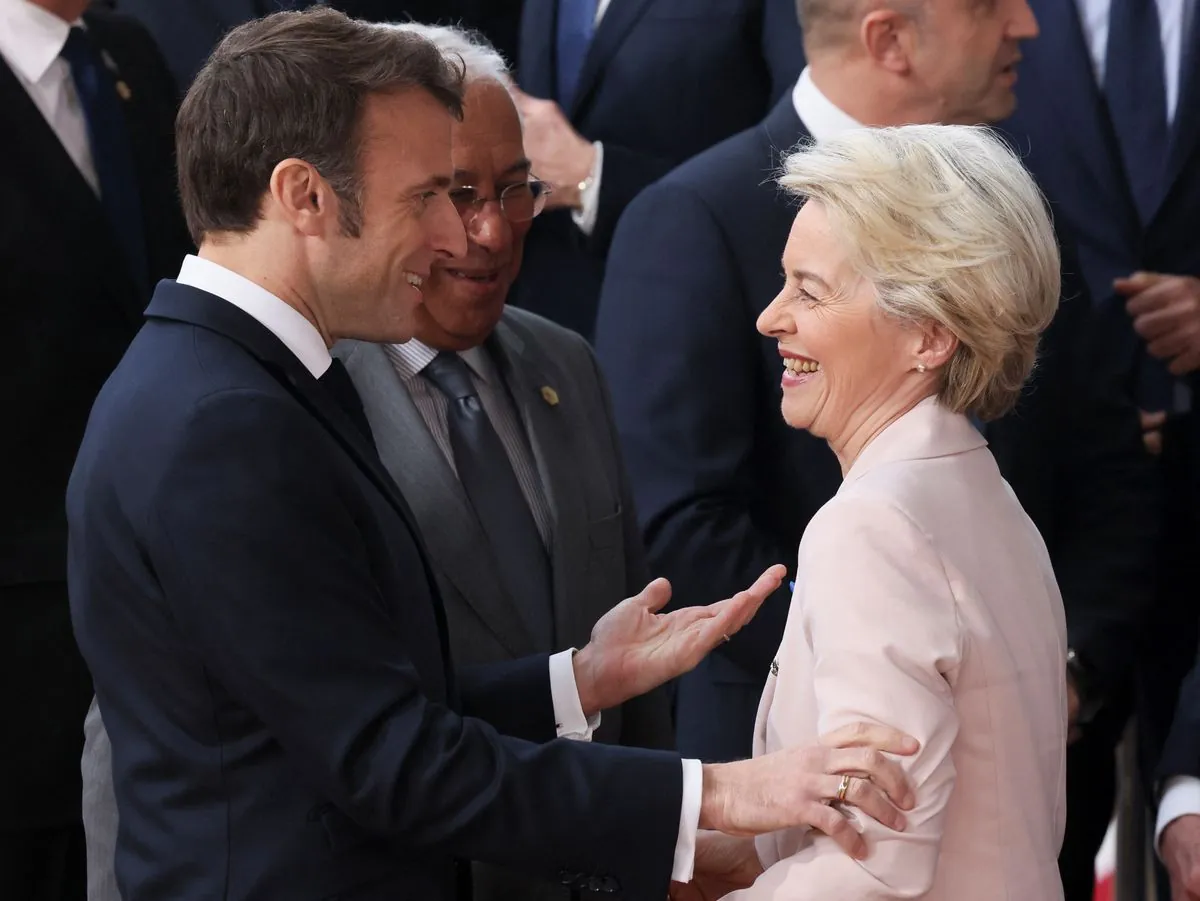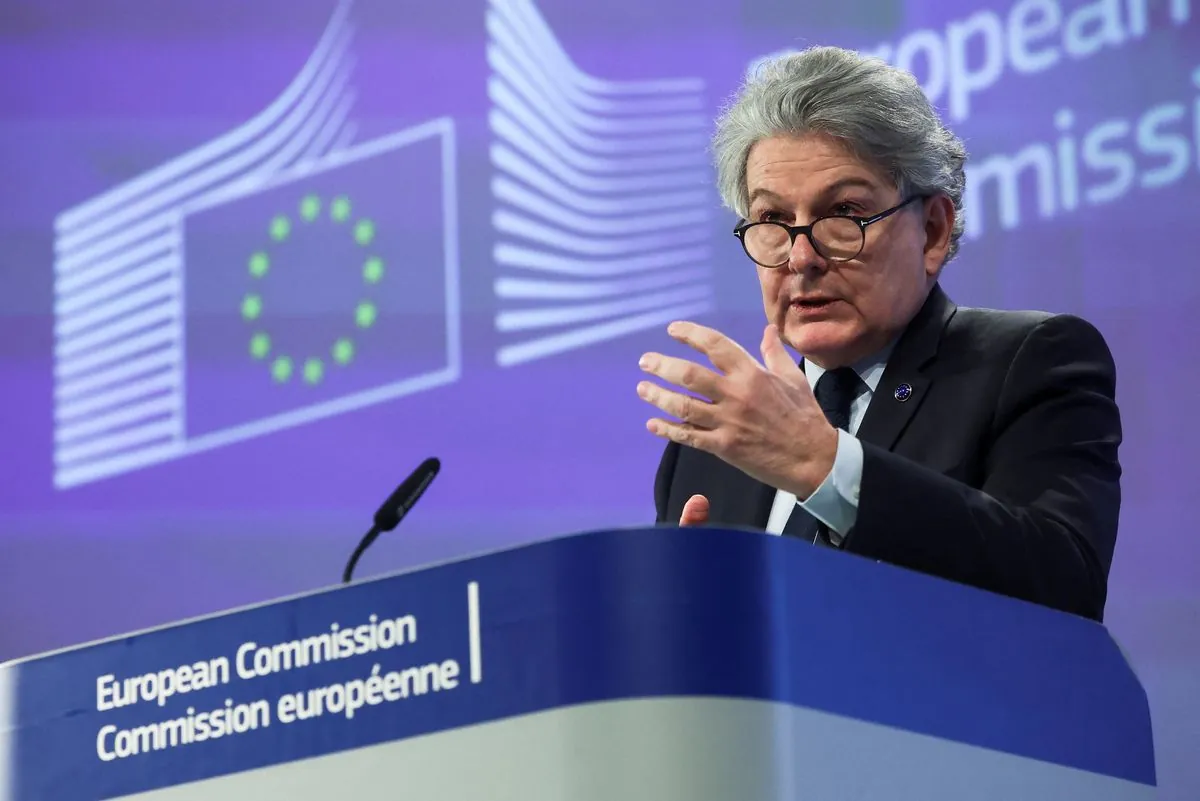Macron's EU Influence Wanes as Commissioner Swap Favors von der Leyen
French President Emmanuel Macron's decision to replace EU Commissioner Thierry Breton with Stéphane Séjourné has been seen as a victory for Commission President Ursula von der Leyen, potentially weakening France's influence in Brussels.

In a significant shift within the European Union's power dynamics, Emmanuel Macron has agreed to replace Thierry Breton with Stéphane Séjourné as France's EU Commissioner. This decision, made in September 2024, has been interpreted by experts as a weakening of Macron's influence on the European stage.
The change comes after Ursula von der Leyen, the re-elected President of the European Commission, named her new team of commissioners for the next five-year term. This transition follows the European elections held in June 2024, highlighting the cyclical nature of EU politics.
Thierry Breton, 69, resigned unexpectedly on September 11, 2024, with strong words for von der Leyen. As a former French finance minister and CEO of major French companies, Breton had become a heavyweight in the Commission, playing crucial roles in shaping EU policies on Big Tech regulation, COVID-19 vaccine response, and defense industry initiatives.

Breton's departure marks a significant loss for France in the Commission. He had clashed publicly with von der Leyen on several occasions and was seen as her main rival within the institution. His influence extended to high-profile interactions, including confrontations with tech billionaire Elon Musk.
The power shift became apparent after von der Leyen returned from her summer break on August 19, 2024. She informed Macron that France would not receive the significant economic portfolio he desired unless he relinquished Breton. This move was described by an EU diplomat as "Machiavellian timing," taking advantage of Macron's domestic political challenges.
Stéphane Séjourné, 39, Macron's choice to replace Breton, will retain the industry portfolio and gain an executive vice-president title. However, experts argue that his influence may be limited compared to Breton's, as he will directly control fewer departments within the Commission.
"President (von der Leyen) intends to lead ... on her own. Inside her college, free spirits have no place, which explains Thierry Breton's resignation. A weakened French president did not feel he should fight the battle to impose him, and that's really a shame."
The implications of this change extend beyond personal dynamics. Some analysts, like geopolitical expert François Heisbourg, express concern about the potential impact on EU defense procurement policy, an area where Breton had demonstrated significant expertise and drive.
As the European Union continues to navigate complex challenges, including Big Tech regulation and defense cooperation, the composition of its executive branch remains crucial. This recent shift underscores the intricate balance of power within EU institutions and the ongoing influence of national politics on the broader European stage.


































